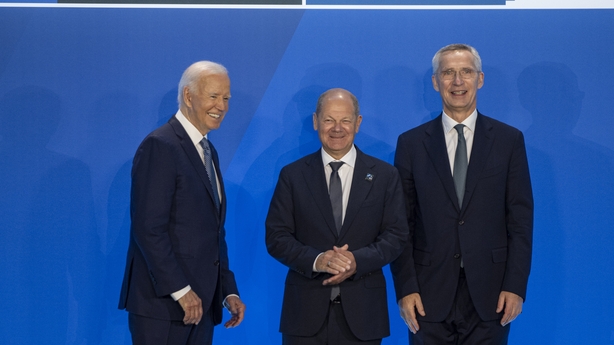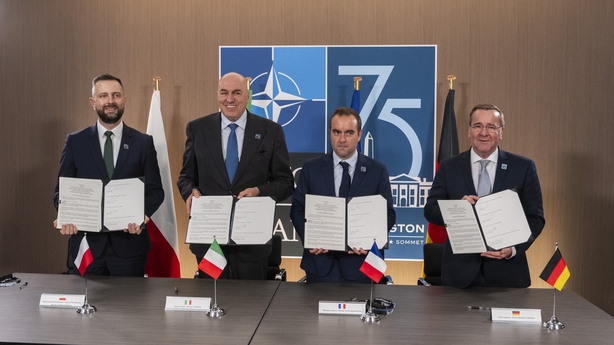German Chancellor Olaf Scholz hailed a decision from the United States to periodically station long-range missiles in Germany as a step to increase deterrence.
"It's something of deterrence and it's securing peace, and it is a necessary and important decision at the right time," Mr Scholz told reporters at a NATO summit in Washington.
The United States announced the step to bolster NATO against Russia in Europe by saying it would begin "episodic deployments" of long-range missiles to Germany in 2026.
The White House said it would eventually look to permanently station them in Germany, and the missiles would "have significantly longer range" than current US systems in Europe.
"Exercising these advanced capabilities will demonstrate the United States' commitment to NATO and its contributions to European integrated deterrence," it said in a joint statement with the German government.

Russia struck back, saying it was planning "response measures" to contain the "very serious threat" from NATO.
The decision was also condemned by opposition parties in Germany including the Greens, the Left Party and the AfD, all of whom said the move would provoke Russia.
European nations agree to jointly develop long-range cruise missiles
France, Germany, Italy and Poland signed a letter of intent to develop ground-launched cruise missiles with a range beyond 500 kilometres, aiming to fill what they say is a gap in European arsenals exposed by Russia's war in Ukraine.

Speaking on the sidelines of the NATO summit in Washington after the signing ceremony, French Defence Minister Sebastien Lecornu said the new missile was meant to serve as a deterrent.
"The idea is to open it up as widely as possible," he told reporters, and suggested Britain's new Labour government could join.
"It has value, including on a budgetary level, because it obviously also allows the various costs to be amortised," he added.
Concerns about closer ties between China and Russia
NATO members met with the leaders of Australia, New Zealand, Japan and South Korea, who want closer ties with the alliance as they voice concerns about China and its deepening ties with Russia.
That meeting takes place as Chinese and Belarussian troops hold joint exercises close to the border with Poland.
Trump and Orbán to hold meeting
Hungarian Prime Minister Viktor Orbán will meet Donald Trump after the NATO summit, according to sources close to the former US president's campaign.
The sit-down in Florida is likely to further upset Hungary's allies after Mr Orbán drew widespread ire from European counterparts for meeting Russian President Vladimir Putin.

